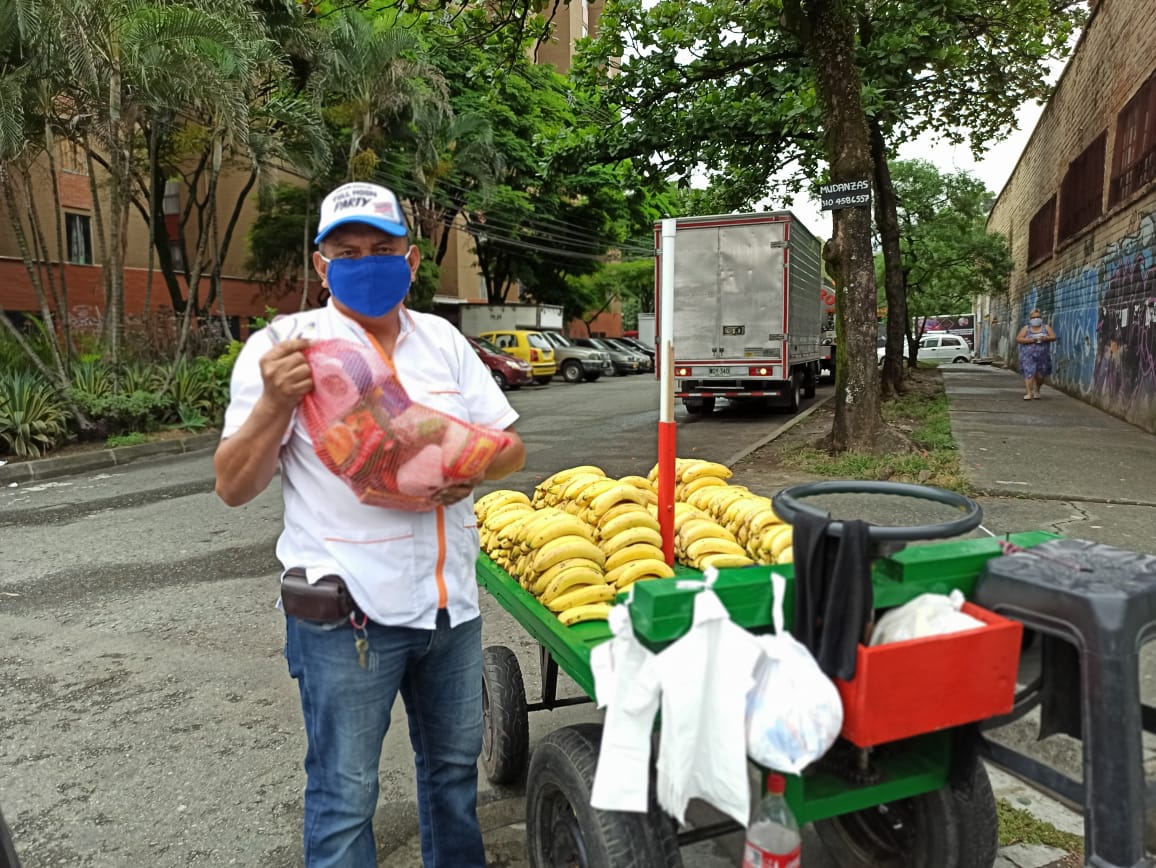By Katie Lutz
At the end of May, the U.N.’s World Food Programme announced that about 14 million people in Latin America and the Caribbean could experience severe food insecurity this year due to COVID-19. The region’s economy is expected to contract by 5.3 percent. Pre-COVID, many countries suffered from significant unemployment and poverty rates; amid COVID, unemployment and poverty are reaching devastating highs.
With this landscape in backdrop, The Global FoodBanking Network (GFN) recently joined the Inter-American Development Bank (IDB) in a new partnership – to launch a Food Loss and Waste Reduction Program for Latin America and the Caribbean.
Founded in 1959 to help accelerate progress in its developing member countries, the IDB is the leading source of development financing for Latin America and the Caribbean, providing financial and technical support for countries working to reduce poverty and inequality. Its clients include central governments, provinces, municipalities and NGOs.
On World Food Day 2018, the IDB launched #SinDesperdicio – meaning No Food Waste – a platform of partners committed to reducing food loss and waste in Latin America and the Caribbean. A total of 12 partners dedicated to this agenda comprise #SinDesperdicio, including Grupo Bimbo, IBM, Nestle, Dow Chemical, Fundación FEMSA, Oxxo, the Food & Agriculture Organization of the United Nations (FAO), The Consumer Goods Forum, The World Resources Institute and GFN. Since the platform’s launch, work and funds have been concentrated in Mexico, Argentina and Colombia.
“The platform tackles food loss and waste from different angles: innovation, policy, knowledge and behavior change,” said German Sturzenegger, Manager of #SinDesperdicio for the IDB. “One of the key partners and beneficiaries of #SinDesperdicio has been food banks. Why? Because food banks’ mission connects directly with both the food waste and food security agendas, something crucial in this context. Daily, food banks make sure a lot of people from low-income neighborhoods have access to food at low prices or no prices at all.”
“The goal of this platform is to encourage governments and companies to work collaboratively on minimizing food loss and waste in the region,” said Ana Catalina Suarez Pena, GFN’s Director of Latin America Operations. “We encourage the platform to keep in mind all the time that food banks are part of the solution. Many of the companies are already working with food banks. When we’re talking about food loss and waste, food banks are not the only solution; we are part of the solution.”
When the pandemic hit Latin America and a surge in demand hit food banks, GFN and IDB partnered to bring emergency relief to countries across Latin America via #SinDesperdicio. This current partnership supports GFN member food banks in Mexico, Colombia and Chile in three ways: training on safety, hygiene and contingency plans; assistance on procuring transportation logistics; and assistance in purchasing PPE.
“It was very effective to channel this support through GFN,” said German. “Food banks are an effective way of mitigating some of the effects of this crisis. To us, reducing food loss and waste has a lot of potential in helping solve this food security crisis. There are opportunities to rescue food, distribute it and make it accessible to low-income people. Food banks are in the middle of it all.”

Ana Catalina shared, “The food banks are happy; they are excited. This grant from the IDB and #SinDesperdicio is a door for them, too, and opens a world of possibilities.”
In terms of outcomes, German shared three overarching goals. “What we expect is, first, an effective delivery mechanism to invest these resources,” he said. “Second, transparency. With GFN, we can easily know how the money was used and how many people benefitted; we can actually know what the impact was. And finally, we’re looking for opportunities to help food banks strengthen their operations and contribute to decreasing food waste.”
#SinDesperdicio is part of the solution in tackling Latin America’s food loss and waste problem – and is another vehicle for getting food to hungry people, especially during our current crisis. We are thankful to be a part of #SinDesperdicio and a partner to the IDB, and we look forward to working alongside both groups on this LatAm development agenda.